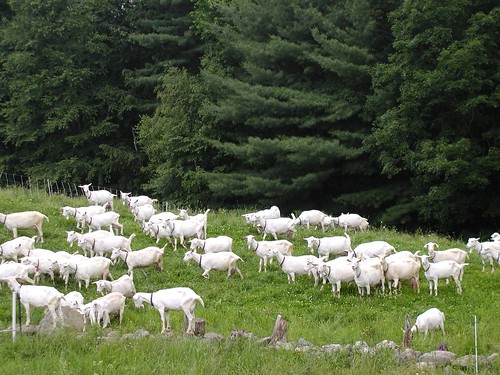
USDA’s Natural Resources Conservation Service (NRCS) awarded the University of Vermont (UVM) a Conservation Innovation Grant (CIG) in late 2010 that will help producers improve and reclaim marginal pasture and increase profits.
For many of Vermont’s beginning and experienced livestock farmers, having access to established pastures for grazing is one of the greatest limitations for production. Often land is infested with weeds, without enough forage to support a successful livestock operation. Producers most commonly control weeds with intensive grazing, mowing, or costly herbicides.
Through the grant, UVM will train farmers to use livestock as a natural “biological” control for non-poisonous weeds. This foraging is a cost-efficient and environmentally friendly way to control weeds and improve Vermont’s working landscapes.
The project will not only benefit Vermont farmers, but will also serve as a demonstration project, giving farmers throughout the northeast an example for how to maximize their lands for livestock production by reclaiming marginal pasture and improving existing pasture, while simultaneously controlling weeds and invasive species.
NRCS administers CIG, which uses Environmental Quality Incentives Program funds to award competitive grants to non-federal governmental or non-governmental organizations, Tribes or individuals. CIG enables NRCS to work with other public and private entities to promote innovative technologies that address some of the nation's most pressing natural resource concerns.
For more information on CIG and other NRCS programs, visit our website.
Check out more conservation stories on the USDA blog.
Follow NRCS on Twitter.
